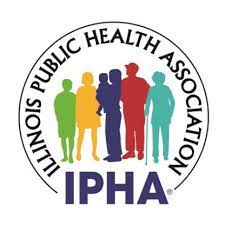Click the link below to review the full agenda. https://roc4aging.org/wp-content/uploads/2024/07/IAS-2024-7.pdf

IPHA: Pioneering HIV and Aging Advocacy
1. What’s your organization’s story and its mission?
The Illinois Public Health Association’s mission is to lead in the enhancement and support of the public health system and the practice of public health, focused on health equity and improved health throughout Illinois. The Association is Illinois’ oldest and largest voluntary organization devoted exclusively to matters of public health. Founded in 1940, it now has nearly 7,000 members statewide and is the American Public Health Association’s largest affiliate.
IPHA has extensive, successful experience in HIV/AIDS programming and policy making. The Association serves as the lead agency for seven HIV prevention regions in Illinois, assisting nearly 40 local health departments, community health centers, and community-based organizations to meet or exceed CDC HIV prevention outcomes; manages the Illinois HIV Care Connect Outreach project, which has been lauded by HRSA for our worldwide HIV communications platform; manages ADAP and Hepatitis B Outreach projects, which have linked hundreds of individuals to lifesaving HIV treatment and hepatitis screening; manages an HIV Third-Party Billing Project, which has assisted dozens of local health departments and community-based organizations to bill third-party payers for HIV testing and other HIV services; manages various HIV programs for the IDPH Center for Minority Health Services, which have helped train hundreds of at-risk African-American and Latino youth on HIV prevention skills; and created the IPHA HIV Age Positively Policy and Advocacy Center to advance policies and practices that improve systems of care for Illinois residents aging with HIV.
2. How is your organization helping fight age-related issues affecting those living and aging with HIV?
With the generous support of Gilead and a diverse and expert team of HIV program leaders with lived experience and decades of programming and policy expertise, IPHA has implemented the HIV Age Positively Policy and Advocacy Center to help fight age-related issues affecting those living and aging with HIV. Specifically, our Center:
- Works with the Illinois Department on Aging (IDOA) and the state’s Area Agencies on Aging to develop and conduct trainings on HIV and LGBTQ+ competency standards for statewide nursing homes and assisted living facilities.
- Develops and implements a diverse, statewide HIV and Aging Policy Corps.
- Participates as a Collaborative member with Ribbon in collaborative-wide discussions on emerging issues and learning opportunities in the HIV and aging field.
- Expands knowledge and access to the state’s aging-related programming at the statewide Area Agencies on Aging.
- Works with the Illinois Department on Aging and the state’s Area Agencies on Aging to assist in the development of HIV and aging-specific services at statewide nursing homes and assisted living facilities.
- Works with the statewide HIV and Aging Policy Corps and the Illinois Commission on LGBTQ Aging to develop an Illinois Policy Agenda on HIV and Aging.
- Works with the Illinois Department on Aging and the Illinois Department of Public Health (IDPH) to advocate for the development of an HIV and Aging Program in the state’s Ryan White programming portfolio.
- Assists with the development of in-person, online, and hybrid training approaches for statewide organizations addressing aging with HIV and develops an Illinois HIV and Aging Training and Resource Directory.
3. What does National HIV/AIDS and Aging Awareness Day (NHAAD) mean to your organization?
National HIV/AIDS and Aging Awareness Day is a day to combat stigma faced by older Americans with HIV and address aging-related challenges of HIV testing, prevention, and care.
For the Illinois Public Health Association this day is also a call to develop more coordinated systems of care for our residents aging with HIV so that we can address their social isolation, their need for stable housing and reliable transportation, their access to welcoming healthcare providers that can address their chronic health needs, and their desire for long-term care services that embrace them for their lived experience and cultural journeys.
4. It’s 2023, 40 years after the Denver principles were first drafted. Are they still relevant today? What would you add or change if anything given all that has come to pass and your organization’s work in this area?
The Illinois Public Health Association feels strongly that the Denver Principles, with their assertion that people living with HIV be the driving force in political and structural decisions for the movement, are more relevant today than ever. At a time when vulnerable populations in this country are being harassed and silenced, the Denver Principles remind us that our colleagues with lived experience should be the leading voices on all matters of healthcare policy, access, structure, and culture. Nothing about us without us!
Forty years later, this manifesto can only be strengthened by embracing all members of the HIV community, including our gender-diverse and trans brothers and sisters, our friends of varying races and ethnicities, those in the community who do not achieve viral suppression, and our members that seek out treatment advances and alternative therapies.

